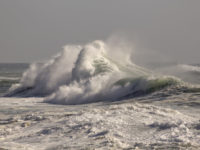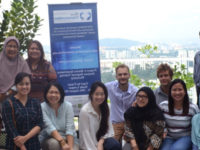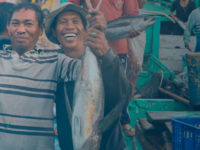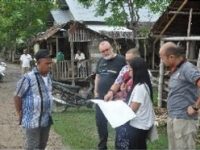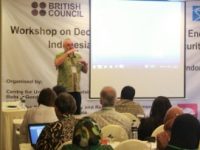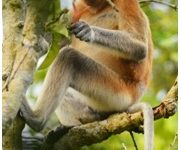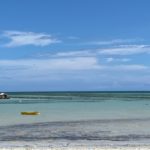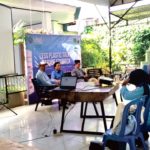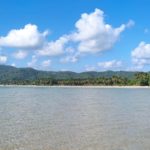Preliminary Assessment of a Tropical Urban Stream Using Benthic Macroinvertebrates as a Bio-indicator in Muara Angke, Jakarta, Indonesia
Donor: UNAS and KCL
Amount of funding: USD 5,000
Project partners: Kings Colleges, University of London, United Kingdom; Faculty of Biology Universitas Nasional, Jakarta; and Centre for Sustainable Energy and Resources Management (C-SERM) Universitas Nasional, Jakarta.
Project summary:
A preliminary study was conducted on the populations, density and distributions of benthic macroinvertebrate species along the course of the Ciliwing/Angke River, Jakarta. The selected river section is highly urbanized and heavily polluted, and 5 study sites were selected along its course to assess the health of the river ecosystem. Benthic macroinvertebrates are used as a bio-indicator of ecosystem health. Their different pollution sensitivities, wide distribution and relatively sedentary lives make them useful candidates for this role. The focal point of the study is the Muara Angke mangrove forest and wetland, a small remnant wetland at the mouth of the river in Jakarta Metropolitan. A comparison will be drawn between the different study sites to assess the health of this unique, critically important habitat. Despite several intense pressures resulting from the highly urbanised surroundings and the mangrove’s position at the mouth of the river, where pollution accumulation would be highest, the data collected from this site showed a macroinvertebrate population dominated by pollution-sensitive taxa, suggesting the mangrove itself continues to provide significant ecosystem services in water-purification.
Documentation:

Muara Angke Protected Area and Adjacent Urban Village – Fishermen and Aquaculture

Muara Angke Habitat

Pluit : Muara Angke Habitat

Roxy : Muara Angke Habitat

Toll: Muara Angke Habitat

Season City: Muara Angke Habitat

Mangrove Pond

Gilled Snail density at site 5

Gilled snail size and species comparison at site 5


